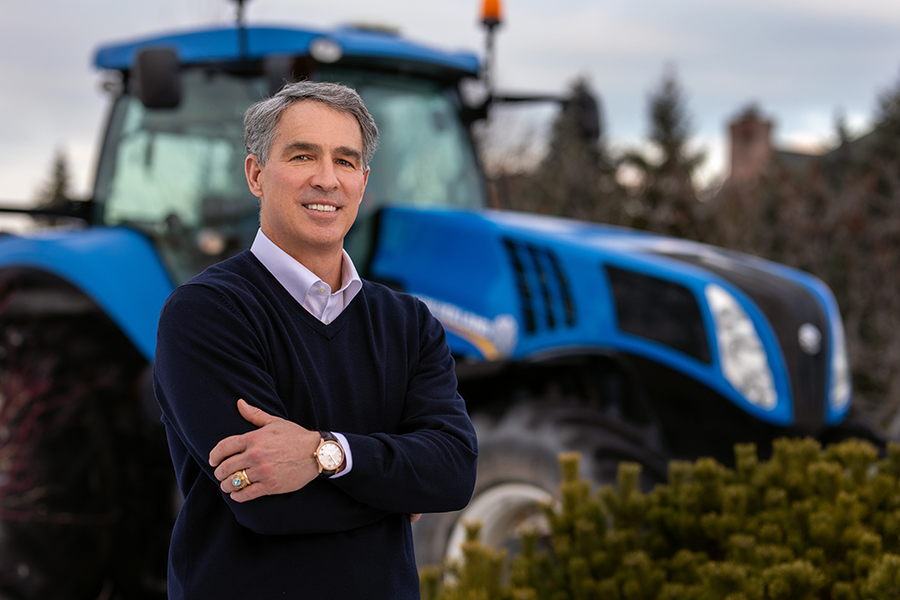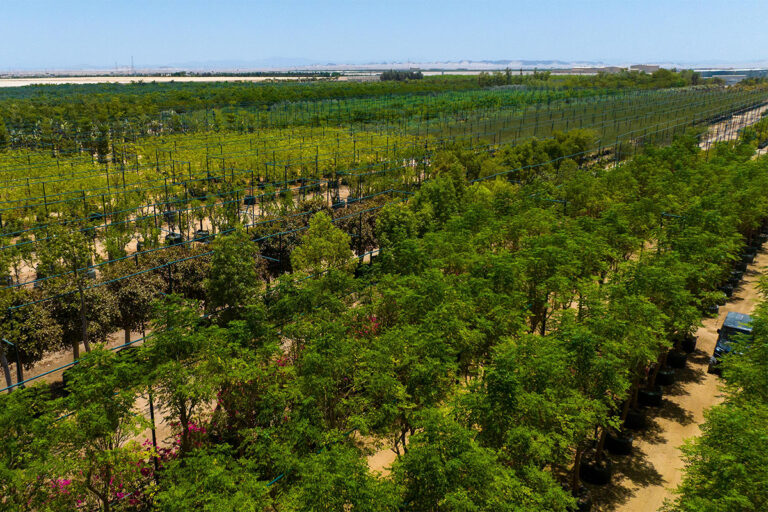
In June 2021, just five months after joining agricultural machinery and construction equipment company CNH Industrial as CEO, former naval officer Scott W. Wine announced the $2.1 billion acquisition of precision agriculture pioneer Raven Industries – the largest in the Company’s history.
One year later, as the world is impacted by an unprecedented food supply crisis and farmers race against time to increase crop yields, demand for cutting-edge agriculture technologies has accelerated beyond all expectations.
“The Raven acquisition has worked out even better than we thought at the time,” Wine says from his office in Burr Ridge, Illinois. “With precision technologies from Raven, we can help farmers reduce the cost of inputs such as fertilizers and pesticides and increase the output of their crops. Agriculture right now is all about productivity and yield. We can give farmers exactly what they need.”
Later this year, crop sprayers sold under CNH Industrial’s Case IH brand will include a visual guidance system that ensures that the vehicles do not damage crops as they move up and down a field. Thanks to individually controlled nozzles and advanced path planning, farmers will spray expensive fertilizers and pesticides only where they are needed. CNH Industrial says that these innovations, developed by Raven, can speed up spraying, minimize the risk of misapplication, and allow operators to cover 20% more land each day.
“Using our precision technologies, farmers can improve their productivity and increase the yields of their crops.”
Scott W. Wine, CEO, CNH Industrial
“With precision farming technologies, we can make sure that pesticides and nutrients are applied only where they need to go,” Wine says. “It is good for farmers and it is good for the environment.”
The potential for precision farming to improve agricultural productivity goes far beyond crop spraying. Raven has developed prototype driverless vehicles for seeding, spraying, and spreading that could address the farm labor shortage in many developed countries and transform traditional processes.

“There is an inflection point coming for autonomous farming vehicles,” says Wine. “We are developing these technologies and we are going to be ready to deliver to customers who do not currently have enough labor.”
At the same time, CNH Industrial is leading the way toward a future in which agricultural vehicles are electrified or powered by alternative fuels such as methane. Last year New Holland Agriculture, the company’s other global farm machinery brand, launched the world’s first 100% methane-powered tractor. By using biomethane produced from crops and animal waste to run these high-performance vehicles, farmers can escape the impact of record-high diesel prices and reduce the carbon footprint of their farms.
“With the New Holland T6 Methane Power tractor, farmers can take waste products generated on their farm, create fuel and put it to good use,” Wine says. “Interest is building fast and there is already a waiting list for delivery.”
To reinforce CNH Industrial’s position on the cutting edge of agricultural technology, the Company has also acquired minority stakes in businesses such as California-based electric tractor startup Monarch and U.K. company Bennamann, focused on delivering low-cost clean energy in agriculture. Like the Raven acquisition, these investments are designed to increase the productivity of farming in a sustainable way while helping deliver global food security.
“The global population is growing fast, and there is increasing pressure on the land under cultivation and less water for irrigation,” Wine says.
“With our focus on innovation, sustainability, and productivity, we can help farmers feed the world.”![]()
As published in Fortune magazine.









